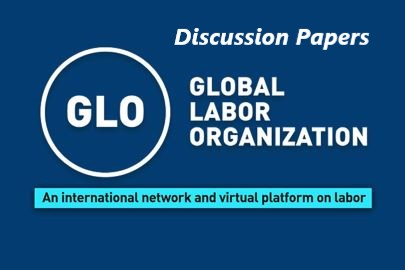A new GLO Discussion Paper studies approaches to to transform household income to an equivalent for individuals.

GLO Discussion Paper No. 948, 2021
Equivalence scale and income poverty: Two approaches to estimate country-specific scale for the Czech Republic – Download PDF
by Mysíková, Martina & Želinský, Tomáš & Jirková, Michaela & Večerník, Jiří
GLO Fellow Tomas Zelinsky
Author Abstract: The at-risk-of-poverty rate, the relative income poverty indicator applied in the EU, can be highly sensitive to the equivalence scale used to transform household income to an equivalent for individuals. This study applies two well-established approaches to estimate the equivalence scale: an ‘objective’ one, based on consumption expenditures available in the national Household Budget Survey, and a ‘subjective’ one, based on the Minimum Income Question available in EU-Statistics on Income and Living Conditions data. The aim is to contrast the two estimated equivalence scales in the Czech Republic in the 2006-2016 period with the OECD-modified scale applied uniformly for decades across the EU countries. Our findings suggest that the adult weight in the equivalence scale is decreasing over time, while the child weight is relatively stable under both approaches. The estimated weights are lower than the officially applied ones, with the exception of the expenditure-based adult weight, which is very close to the OECD-modified weight. Applying the estimated scales affects the income poverty rate and leads to different rates than the official ones: while the trend of the rates is similar when the two estimated scales are used, the official income poverty rate deviates from those two.

GLO Discussion Papers are research and policy papers of the GLO Network which are widely circulated to encourage discussion. Provided in cooperation with EconStor, a service of the ZBW – Leibniz Information Centre for Economics, GLO Discussion Papers are among others listed in RePEc (see IDEAS, EconPapers). Complete list of all GLO DPs – downloadable for free.
The Global Labor Organization (GLO) is an independent, non-partisan and non-governmental organization that functions as an international network and virtual platform to stimulate global research, debate and collaboration.
Ends;

